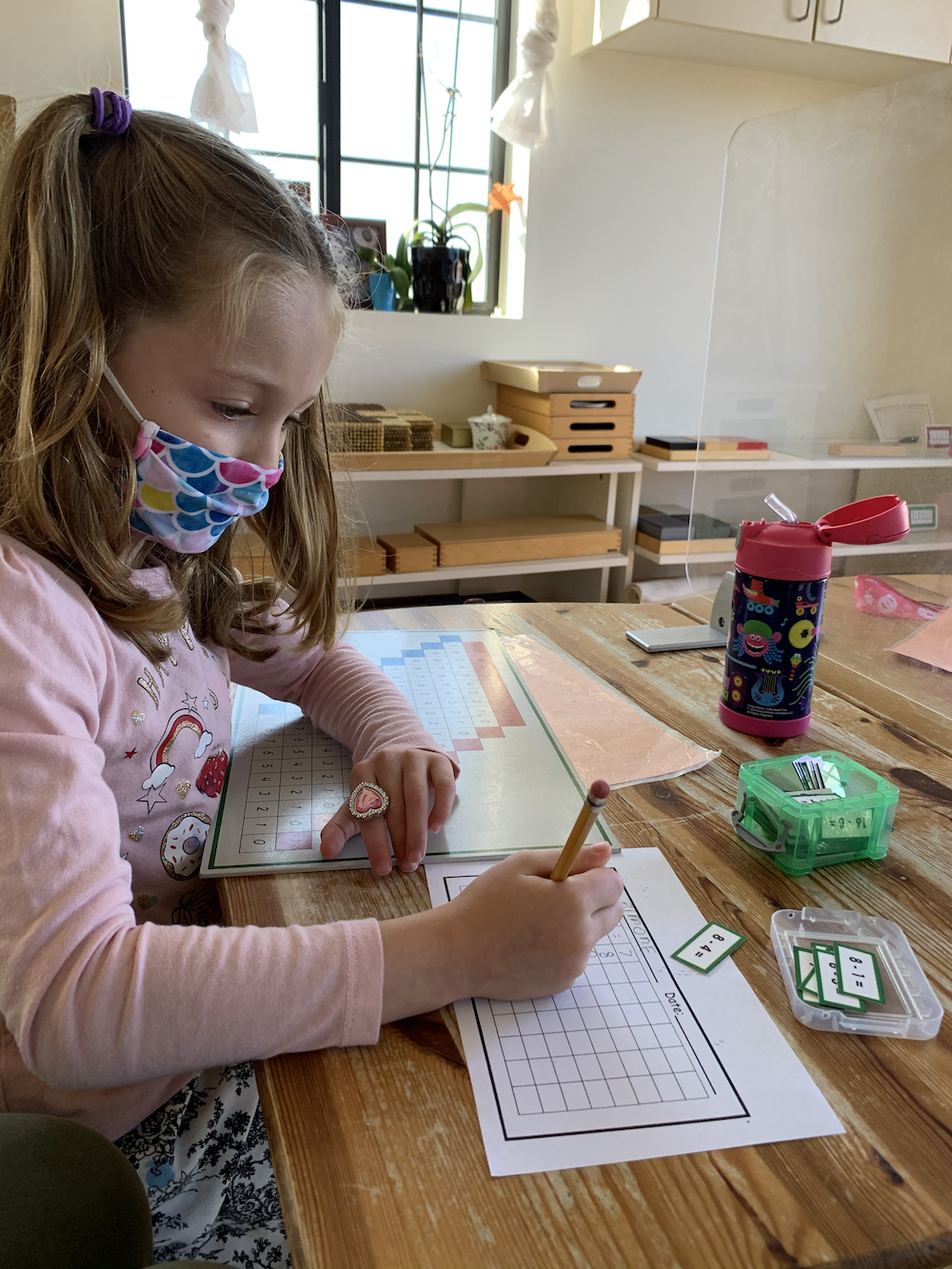(858) 759-0631
One way how Montessori elementary schools differ from public and faith-based schools is this: Montessori schools don’t assign grades.
Why not?
In Maria Montessori’s view, assigning students grades breeds more harm than good by instilling a fear of failure; low self-esteem; anxiety; depression; anger; resentment, and parental rejection.
Sadly, most elementary schools assign more importance to the outcome of a subject matter rather than the process that leads students toward understanding and mastery.
In a Montessori elementary school environment, a student’s growth is built upon teacher interaction. At each junction, teachers monitor your child’s progress through conversation, observation, conceptual understanding and practical application of curricula.
More than 100 years of research has shown that students who attend Montessori schools foster higher levels of executive functioning skills like self-discipline, autonomy over learning, deep focus, critical reasoning, and problem-solving. Other studies have also shown that students who attended Montessori elementary schools significantly outperformed peer groups on high school exams. This particular study found that attending a Montessori program from the approximate ages of three to 11 predicts significantly higher mathematics and science standardized test scores in high school.
Learning How To Think
Montessori trains students individually and at their own speed, pace, and level. In this Montessori environment, children are trained to think—and think differently--by making mistakes, focusing on what they love, learning from broad age-range peer groups and practicing until they get it right.
As a result, your child becomes curious, self-reliant, self-motivated, independent and capable of thinking outside the lines. These tools bolster our elementary classrooms, where lower teacher-to-student ratios give your child more direct instructor time to seek answers, ask for help, push themselves and achieve understanding.
Most importantly, they are focused on learning without anxiety and without working towards test-based outcomes.
Stronger Outcomes: Progress Reports, Not Grades
One key takeaway exhibited by teaching this way: parents change their thinking.
Instead of focusing on their child’s poor scores, parents learn to focus on preparation, effort, teacher feedback and making future changes.
Focusing the attention on what the child did to earn that grade rather than celebrating high grades and punishing over a low one has far more effective and positive outcomes.
For example:
- How did they prepare for the class assessment?
- What might they do differently next time?
- What was successful, and what do they need to change?
- Did they get enough sleep the night before the test or did they stay up for “just one more hour” to review?
- Did they speak with the teacher to get feedback on what worked and what did not?
It’s essential to steer discussions for progress back to the learning and how to be more efficient for the next progress to create the space for an invested learner.
Parental Effect of Progress Reports
Jessica Lahey, a teacher and New York Times best-selling author, and Jim Taylor, a psychologist who specializes in parenting, provide their expert opinion regarding a terminology called “outcome love”. This terminology is a transaction in which parents bestow the reward of love in exchange for their children’s success, and withdraw that love as punishment for failures.
Parents who previously may have centered on a ‘love for performance’ or a ‘love of outcome’ start to shift their behavior towards the process of learning and away from the end product of grades and scores.
The result: a reaffirming process that builds a more effective, efficient and invested learner—your child.
Summary
Lifetime Montessori School is invested in building each child’s ‘wholeness’ from the inside out—from the child’s thinking to the outside world he or she faces daily. A result: Parents and teachers see academic, social, and emotional growth that translates into building tomorrow’s leaders. That’s why Montessori schools don’t assign grades.

